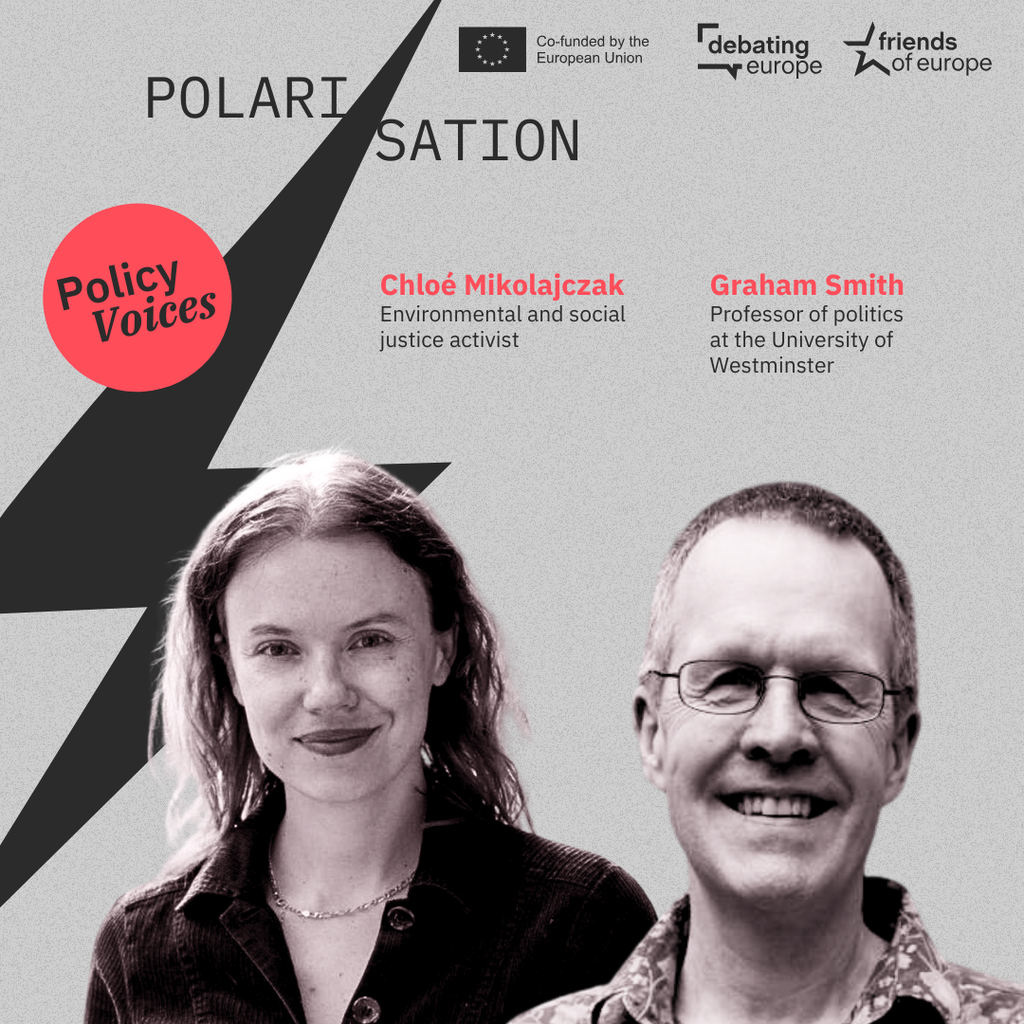Climate and Energy Summit 2025
Next event In person & livestreamed

- Area of Expertise
- Climate, Energy & Natural Resources
Climate, Energy & Natural Resources

Executive Director of the System Shift Lab, Research Fellow at the Schumacher Institute for Sustainable Systems and an award-winning investigative journalist and change strategist
For the first time in history, in the wake of the corona crisis, US oil prices have gone negative thanks to record lows in global oil demand. This pandemic has revealed deep-seated structural vulnerabilities in our fossil fuel-dependent economy. The most important scientific concept needed to understand these vulnerabilities is ‘Energy Return on Investment’ (EROI).
EROI measures how much energy is used to extract energy from a particular resource. What’s left is known as surplus ‘net energy’ which supports goods and services outside the energy system. The higher the ratio, the more surplus energy is left for the economy. That surplus is running increasingly thin.
In the early 20th century, the EROI of fossil fuels was sometimes as high as 100:1, meaning that a single unit of energy would be enough to extract a hundred times that amount. But since then, the EROI of fossil fuels has dramatically reduced. Between 1960 and 1980, the world average value EROI for fossil fuels dropped by more than half, from about 35:1 to 15:1. It is still declining – latest estimates put the value at between 6:1 and 3:1.
This has exerted a ‘brake’ on the rate of economic growth for the world’s advanced industrial economies, which has decreased since the 1970s. Europe is a locus-point for these trends. By the turn of the century, all conventional oil producers across the continent – except perhaps Italy – were past their peak production.
The pandemic was a pin that burst this oil bubble
Globally, conventional crude oil has entered a long plateau for the past decade and a half. To meet demand, the industry shifted to more expensive unconventional forms, with US shale supplying over 70% of global oil supply growth.
In February, the Geological Survey of Finland – which oversees the EU’s mineral resource modelling – found that this growth was a debt-driven “bubble”. Although there is “plenty of oil left,” it is “increasingly expensive to access”, they warned. As such, most shale oil companies face negative cash flow, compensated for by drawing down billions of dollars of unrepayable debt. The pandemic was a pin that burst this oil bubble. And it may never re-inflate.
The demand slump will probably last more than a year. Optimists anticipate 18 months to develop a vaccine, but it is unclear whether regulatory hurdles can be overcome to allow this to happen. Most likely, we are still several years away. According to top systems biologist Professor David States, a vaccine may not even be possible.
The pandemic thus brings the global oil industry to a halt indefinitely. Yet oil wells cannot simply be switched on and off, because they are organic deposits needing pressure to extract. A prolonged shut down risks inflicting permanent reserve damage that could prove too costly to repair.
It is imperative for the EU to double-down on the Green Deal vision of a sustainable industrial revolution
By the time we make it to a post-COVID-19 world, much of the oil industry could be decimated. If demand resurges, this might drive exorbitant price hikes, further ‘braking’ economic growth. In either scenario, the current oil glut could be paving the way for longer-term scarcity.
It is therefore imperative for the EU to double-down on the Green Deal vision of a sustainable industrial revolution. This requires taking a twin approach: a ‘life-boat economy’ approach designed to mitigate immediate risks, and a rapid transition to resilient economic foundations. The longer such a transition is delayed, the bigger will be the ramifying impacts of the oil sector crisis on Europe’s critical supply-chains across energy, food and manufacturing.
The global industrial food system, which is fundamentally dependent on oil inputs, along with core mining and manufacturing processes, could face unprecedented strain. A transition will not free us from biophysical constraints. Renewable energy cannot sustain an ‘endless growth’ economic paradigm. The transition requires a comprehensive post-oil transformation of major industrial sectors to create a vibrant new clean infrastructure across agriculture and manufacturing.
Nationalisation of debilitated oil sectors, for instance, may be the only way for EU member states to shield their economies by winding down the industry on a science-based timeline, while protecting, reskilling and transitioning workers into new sustainable and renewable infrastructure projects.
Challenges could be alleviated by urgently scaling up alternative bridge fuels sourced from deforestation-free zones
Meanwhile, as traditional petrol supply infrastructure breaks down – some petrol stations are already being forced to close due to plummeting fuel sales – we may need to consider strategic mitigation measures to protect transport networks and critical supply chains.
A joined-up approach could address both a coming energy crunch as well as a potential driver of a heightened risk of disease outbreaks: deforestation.
Both challenges could be alleviated by urgently scaling up alternative bridge fuels sourced from deforestation-free zones. One example of this is Malaysia, where the government has created mandatory national regulation to support a transition to 100% deforestation-free sustainable palm oil.
The EU should incentivise producers in a way similar to previous EU schemes, such as regarding illegal logging. New research shows that bans and boycotts are counterproductive and only serve to displace the deforestation problem onto more land-intensive commodities like soy, rapeseed and sunflower.
Europe needs revised notions of prosperity that uphold ‘well-being economies’ within planetary boundaries
EU experts should work with, monitor and support partner countries’ sustainable transition. This would offer a bridge for Europe’s Green Deal clean transport revolution, precisely at a time when traditional petrol distribution networks are at growing risk. This could also open the door for stronger economic partnerships.
This only scratches the surface of the out-of-the-box thinking needed to move off fossil fuels. Ultimately, we need to transcend the ‘endless growth’ paradigm itself – born in the era of cheap and abundant oil. Europe will need to consider that continued GDP growth may no longer be possible. EU businesses will need to reconnect with their fundamental social purpose to remain viable. Instead of producing endless ‘stuff’, Europe needs revised notions of prosperity that uphold ‘well-being economies’ within planetary boundaries.
Stimulus packages should facilitate this longer-term re-design of our economies – a shift from the ‘laissez-faire’ economics of ‘each individual for themselves’, to new, cooperative and inclusive approaches. The alternative is economic collapse.
The plunging oil price is a major sign that industrial civilisation as we know it has reached an inflection point. European policymakers should face up to the fact that this pandemic is forcing us to leave the fossil fuel era behind us.
Next event In person & livestreamed

Past event In person & livestreamed

Past event In person & livestreamed

Past event In person & Livestreamed





Stay informed
We use cookies and similar technologies to adjust your preferences, analyze traffic and measure the effectiveness of our campaigns. Learn more about our privacy policy.